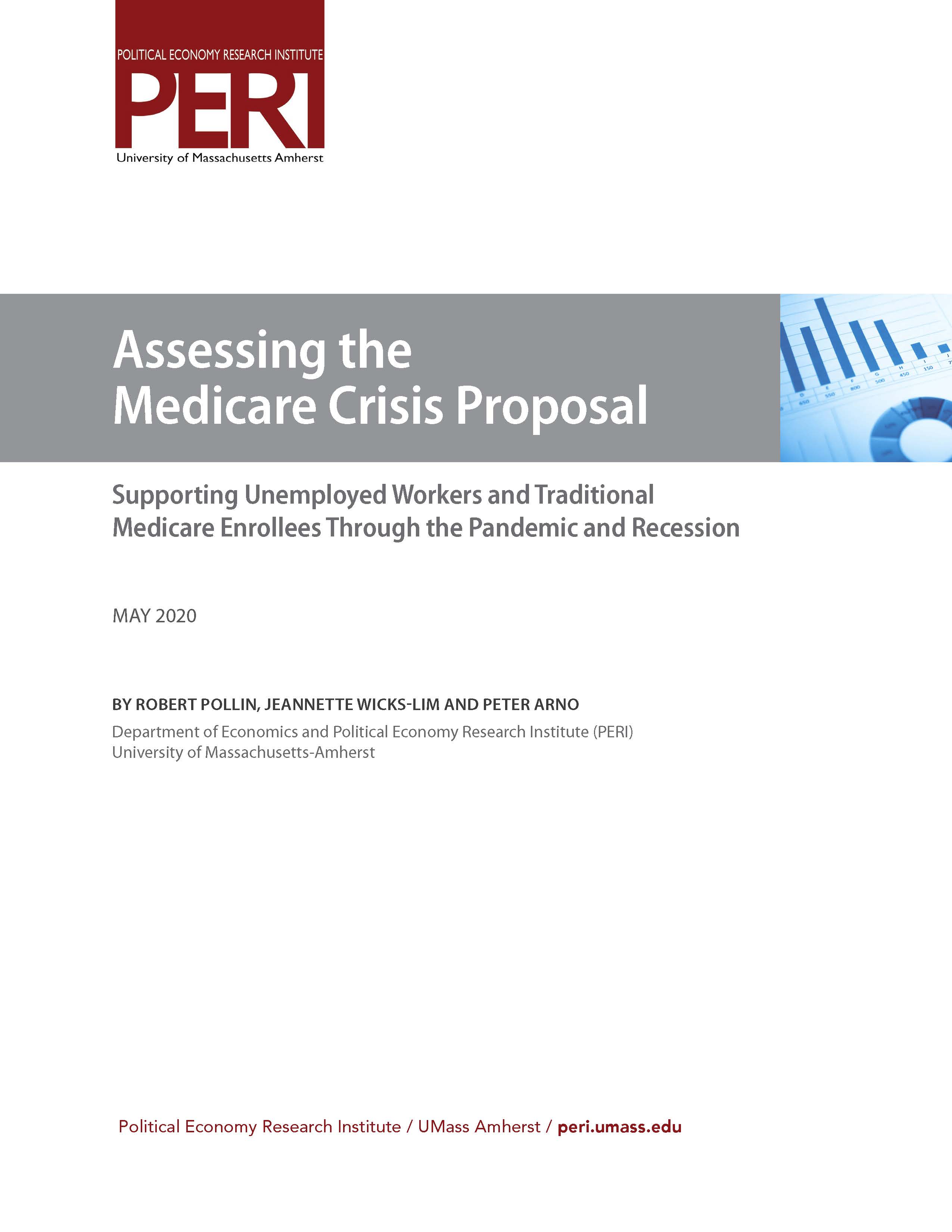Summary
Representatives Pramila Jayapal and Joe Kennedy have recently proposed the Medicare Crisis Program as a measure that would be critical in providing support to families over the course of the pandemic and severe economic downturn. The Medicare Crisis program would enable anyone who has filed for unemployment insurance due to the COVID-19 crisis to receive traditional Medicare support for themselves and their families. This will include any testing or treatments related to COVID-19 itself. In addition, under Medicare Crisis, the federal government also will absorb all cost-sharing for unemployed workers and their families, including deductibles, co-payments and any additional out-of-pocket expenses. Further, under the Medicare Crisis program, all ongoing traditional Medicare enrollees—whether or not they have become unemployed due to the pandemic and economic downturn—will receive additional health insurance benefits.
In this note, we estimate the costs of the Medicare Crisis program. We also compare this measure with a bill introduced by Democratic Congressman Bobby Scott—the Worker Health Care Protection Act. This proposal would subsidize the existing COBRA program that is now available to workers who lose their employer-sponsored health insurance. Under the proposed subsidized COBRA measure, the federal government will assume the full costs of health insurance premiums within the existing COBRA program. But the unemployed workers will still be responsible themselves for covering all out-of-pocket costs, including deductibles and co-payments.
Overall, we find that, in comparison with the alternative subsidized COBRA proposal, Medicare Crisis would support 50 percent more unemployed workers and their families. Overall, Medicare Crisis would provide significant support for 95 million people—30 percent of the U.S. population. In terms of direct cost comparisons—i.e., considering only the relatively limited cohort of unemployed workers who would be covered under subsidized COBRA, those who had previously carried employer-based coverage—we estimate that Medicare Crisis provides comparable support at nearly 50 percent lower overall costs than subsidized COBRA.




